DOWN THE HIGHWAYS OF AMERICANA
He is Yorkshire born and bred and lives on Lanzarote, but today Norman Warwick travels
DOWN THE HIGHWAYS OF AMERICANA
with Marcus K Dowling, Nashville Tennessean,….
and arrives at a cross-roads.
As it approaches the twenty fifth anniversary of its christening as Americana, the music we once knew as Country and Western, and then as Country, is facing an important crossroads in its young life. It has enjoyed halcyon teenage years, but now it has to take responsibility for itself, come to terms with what it represents and to see itself as others see it (and hear it).
Readers of Sidetracks and Detours will be aware that long-time UK fans of the genre, like myself and Peter Pearson have been worrying away about the current status of Americana in several of our twenty five editions of PASS IT ON, our weekly Sunday Supplement
In days long before it was annointed with the name, that somehow carried, and carries still, a sense of gravitas with which it had not always been associated in previous incarnations, Mr Pearson and I were attending concert in the UK of great singer-writers, which we, or certainly I reluctantly had to refer to as country. Americana was a name surely chosen by record labels, media, artists, (who among us can remember?) to more suit a genre with the weight the land of the free on its shoulders.
So, having been some state of confusion for all these year, there was every chance I might find some enlightenment in this essay by Marcus K Dowling, and that has certainly proved to be the case.
He commenced the history lesson / philosophy lecture at a moment when Allison Russell – a French Canadian woman, and champion of the queer community – sangs an African ancestral hymn in front of an enraptured crowd of thousands.
And simultaneously, in a city on Virginia’s southwest border known for nearly a century as the birthplace of country music, a lonesome diesel-engine train whistle blew in the distance.
This moment occurred a week before Nashville is overtaken for the week by the near quarter-century-old Americana Music Association’s “Americanafest” event.
On a humid weekend evening, as a slight breeze felt like Americana’s breath in a rarefied new air. a division presently occupies the space between country music and the “Americana” artists like Price and Russell.
The subgenre exists in a marketplace where country music has finally jumped on board streaming’s – hold on mainstream music. Country – sometimes with tinges of what people call “Americana” included – has a guiding hand over popular musical aesthetics and commercial desires.
In its most unadulterated form, what does “Americana” become in relation? If the subgenre can accept being something bigger than commerce and music can define, its future is unparalleled in reach, scope and excellence.
In 1999, the Americana Music Association was born to represent “Americana,” a style of music that followed country music’s roots through folk, rock and punk – to a point.
Shania Twain space for something more “roots”-inspired emerged when country’s most mainstream urges merged with billion – no longer million – dollar commerce after acts like Garth Brooks, Faith Hill, Tim McGraw and Shania Twain achieved 90s-era stardom.
Guy Singer-songwriters like Guy Clark and Jim Lauderdale, plus artists including Wilco and Lucinda Williams and rootsy pop outliers like Keb’ Mo’ and Rhiannon Giddens, initially emerged as “Americana” stars. That said, however, I and our Tourmaster General, Peter Pearson were watching UK concerts long before the handle of Americana was coined for a music the media had not then separated from Country And Western.
Folk-country icons Alison Krauss and Robert Plant, Emmylou Harris and Rodney Crowell, Marty Stuart, The Indigo Girls, Mary Chapin Carpenter, and more, created Americana as a space where critical acclaim, sustainable touring success and globalized appeal defined a less commercialized pop-country notion of success.
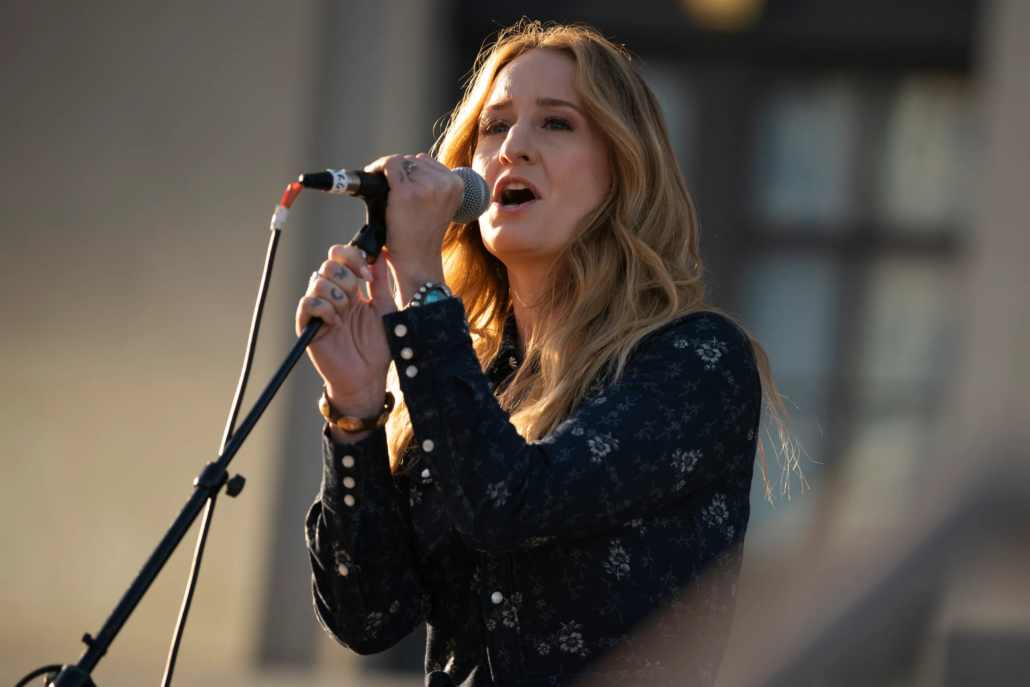
At the same time as the Americana Music Association was being formed, Margo Price (left) arrived in Nashville in 1999. She describes having enough appeal back then to be invited to a CMT event.
“I did a kegstand on a wine dispenser there, and I thought, after that, that I’d never be invited back to anything [in country’s mainstream].”
Price’s journey outside of country’s mainstream saw her, 15 years later, become the Americana Music Awards & Honours Emerging Act of The Year. This occurred two years after her husband, guitarist Jeremy Ivey, sold their car and recording equipment and pawned her wedding ring to finance her debut album, “Midwest Farmer’s Daughter.”
That level of passion is a crucial differentiator and part of another facet of Americana’s genre definition.
Do you make country music that sounds like not just the sounds of a lovelorn or sad person — but perhaps made from the perspective that if you fail, you could quickly end up homeless and destitute?
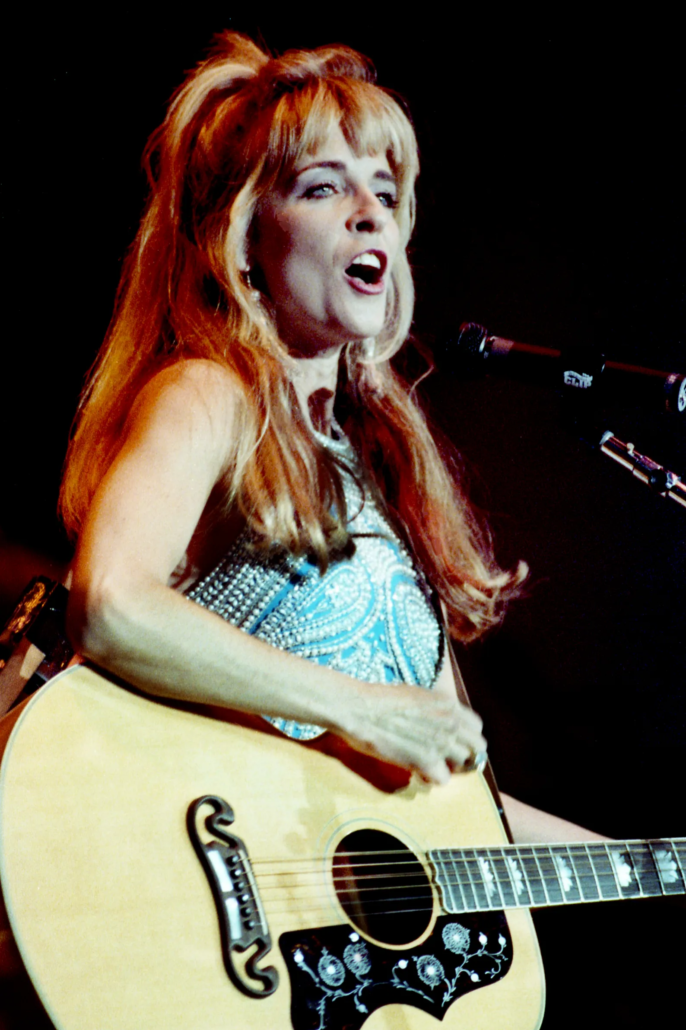
Carlene Carter (right) – Carl Smith’s daughter and stepdaughter to June Carter Cash and Johnny Cash – recalls a moment in 1973 wherein country’s pop urges caused traditionalist-adoring performers like John Prine and the Nitty Gritty Dirt Band (also key Americana influences) to eschew countrypolitan’s surge for other influences.
That was the year after her grandmother, “Mother” Maybelle Carter, paired with Roy Acuff, Doc Watson, Earl Scruggs and more to release, among many songs, the Carter Family’s “ill The Circle Be Unbroken.
Carlene – herself an artist having released 12 albums over her five-decade career – spoke to The Tennessean at Bristol’s Birthplace of Country Music Museum while wearing a dress that she notes she purchased not from a superstar designer but rather from Target to attend Bristol’s Rhythm and Roots Reunion.
It’s a choice that speaks as much to comfort and convenience as it does to the stark differences between mainstream country trappings to those of the Americana world.
Between 1990-1995, Carter was signed to Warner Brothers and attempted a mainstream country career.
“I was extremely hands-on with my image and marketing – I ended up in a boardroom crying because my career was headed in a direction that violated every fibreer of my being,” the legacy performer says.
“After I left the label [in 1996], all I saw were a bunch of Carlene clones – except they didn’t talk back.”
As more of the essences of bluegrass, blues, folk and gospel were left on the cutting room floor, country music –more lucrative and streamlined than ever – emerged.
Within two decades, though, a fraying of Americana’s definition, later exacerbated by other issues, emerged.
In 2017, Adia Victoria – a Black female blues musician – stated that she didn’t want to be “appropriated” by “Americana,” an “arrogant” community that “thinks of itself as the more ‘enlightened’ arm of the country music machine,” but was instead a “homogenous blanket of White [throw in a few token artists of colour to keep the mix right].”
A year later, the savaging continued. Tyler Childers delivered a caustic acceptance speech when he won the Emerging Artist of the Year award at the Americana Music Honors & Awards. He, as a self-professed “country music singer,” criticized the “Americana” genre for being “no part of nothing and is a distraction from the issues that we’re facing on a more considerable level as country music singers. It kind of feels like purgatory.”
However, on the cusp of 2024, streaming has blurred arbitrary genre lines.
Pop-country superstars Jason Aldean and Luke Bryan can fill the same Bridgestone Arena as Americana Music Award Artist of the Year-level performers like bluegrass star Billy Strings and guitar-favouring singer-songwriters Brandi Carlile and Jason Isbell.
Also, dig deeper into 2024’s calendar and there are artists like Childers touring with Americana Music Awards & Honors-nominated Group of the Year 49 Winchester at Bridgestone.
“We were – like a lot of acts that are claiming ‘Americana’ – borne from festivals like Rhythm and Roots,” 49 Winchester’s bass guitarist Chase Chafin told The Tennessean.
The band hails from near Bristol in Russell County, Virginia.
“It’s the melting pot,” he said. Bluegrass with fiddles, a rock band with a trombone player, legendary country music — all good American music that’s not necessarily being made with the barriers of commercial success and genre restrictions in mind.”
Also, emerging country star Zach Bryan is touring stadiums as supported by the previously-mentioned Isbell, plus acts like Sheryl Crow, Sierra Ferrell and Turnpike Troubadours. Their traditional edges all work outside mainstream country’s more narrowly defined and pop-aimed scope.

Alison Russell (left), a 2023 Americana Music Association Artist of the Year nominee, and 2021 Americana Song of the Year nominee Amythyst Kiah arrived at the top of Americana’s heap as Black female standouts in and through 2020’s racial reckoning.
Kiah is a Johnson City, Tenn. native and East Tennessee State University graduate who literally minored in bluegrass music. She follows a tradition extending to Rhiannon Giddens as a banjo reclamationist.
As she learned more about the music familiar to an instrument that shared her racial heritage, visions of “smiling and laughing” white fans of her playing confused her.
“I was losing my mind because I was absorbing the good, bad, and ugly that create the pain of history and channeling it into a pure, beautiful, and musical form,” she adds.
Similarly, Montreal-native Russell’s story as a world-renowned multi-instrumentalist intersected with the banjo and alongside Kiah, Giddens and Leyla McCalla. The artists joined forces for the Our Native Daughters project.
It revived Black ancestry as a weapon against white supremacy, notes Russell.
In the past five years, Russell’s grown from being a hyper-literate folk singer to a gatherer of people and sounds who share “faith, strength and hope” as a “Rainbow Coalition” whose free humanity is a struggled-for, yet still guaranteed birthright.
“Ah ha, hush that fuss / Send your demons to the back of the bus / No matter how they holler / No matter how they moan / They can’t change where they are going,” sings Russell on the chorus of “Demons,” from her just-released album “The Returner.”
Americana currently requires concepts greater than music to define itself.
In a recent thread on X, the social media platform formerly known as Twitter, Grammy-winning Americana superstar Brandi Carlile stated that “folks want the best shot for their art [and] to reach the most people possible,” which required “Americana” at present to represent American inclusivity that sonically sounds like American roots music, “but philosophically, it’s more.”
That something more is that Americana, as a metaphor, is fluid, like water.
And, like water, it’s defined by how people relate to, use and define something so essential to their essence.
Country music’s mainstream – compared to Americana, at present – is water, as a bare minimum, a vital necessity.
Among many things, it refreshes, washes, and falls from the sky.
Americana, comparatively, presents water’s different, nuanced essential needs.
For some in Americana, like Russell and Kiah, the water is tears or cool water to soothe an angered expression.
Russell is an empathetic survivor who has undergone many layers of loss of her subjective human self-identity. Her music cannot help but reflect direct, varied responses from raw, psycho-meditative spaces.
Sometimes, Russell’s art emerges like the melody of her song “Nightflyer” – “and the space between every note the swallow sings.” Other times, it’s “so long, farewell, adieu, adieu to that tunnel I went through” in “Springtime” – equal parts inspired by Nina Simone and Maria von Trapp.
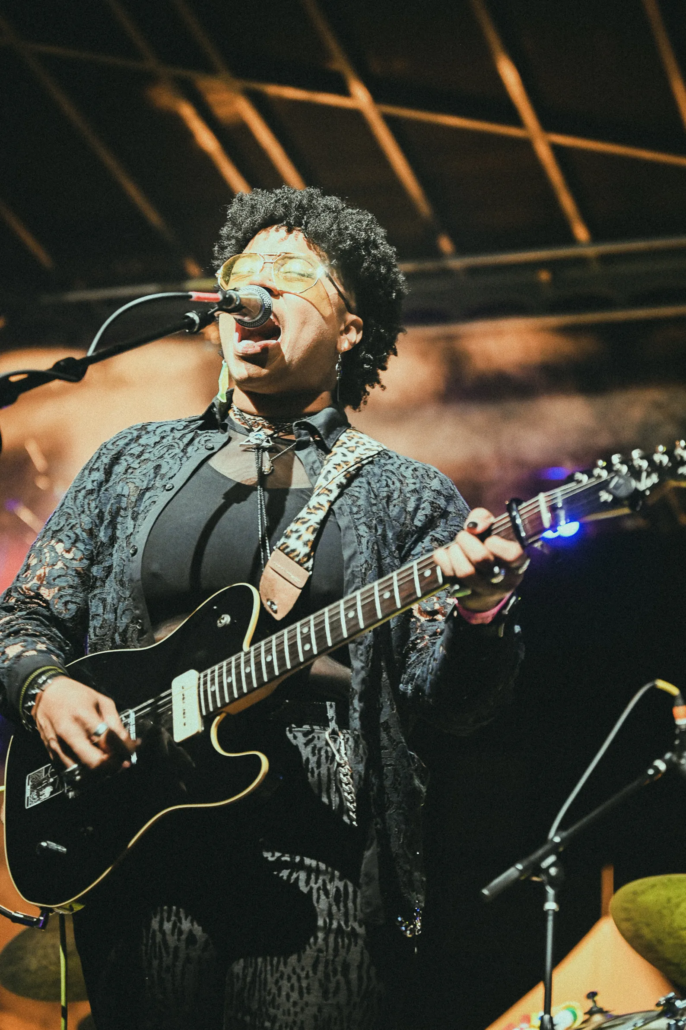
photo kiah Kiah’s crippling anxiety about feeling “wary and strange” (also the name of her 2021 album) about defining herself as a Black queer woman arrives as her anthemic single “Black Myself” flies in the listener’s face. It’s locked in the blues and gospel and dripping with tears caused by celebrating one’s authentic self with reckless abandon.
For Price, the water washes away the past and ushers in a progressive future.
“Maybe everything had to fall apart so we could build it back up together. In 20 years, we can look back at this era and applaud our shared bravery to work at understanding how by not being driven by corporate greed – but also connecting and preserving our populations and their heritages – we become [a like-minded community].”
To hearken back to The Carter Family’s unbroken circle, Carlene Carter says it best.
“Americana exists so honest people can make real music that defies needing smash hits. It’s about good songs that show people how art can improve their lives,” she said. “If a song makes big money? Great. But the real value is getting people out to hear and see music that makes them want to have honest conversations with each other again.”
Peter Pearson and I have explored all points forward to try to work out what sidetracks and detours we might have to follow on the journey ahead with Americana. I guess its pretty unlikely that either of us will ever reach the end of that particular musical road but having written about so many artists within the genre, mostly groups and female artists, strangely, we can at least look forward to the next few miles of the trip.
So, check out Peter´s article on Sunday 29th October when he looks at some of the late male artists like Prine, Stewart, Van Zandt and Guy Clark who made music that will surely remain the highways of American, and also those such as Charlie Crocket, Billy Strings and Ryan Bingham,
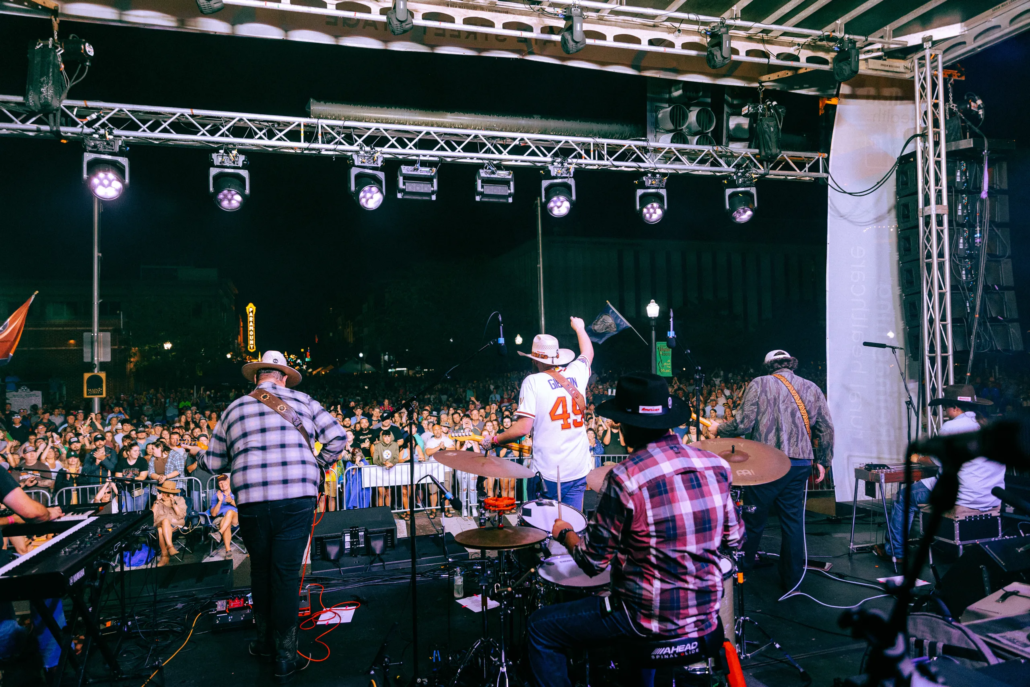

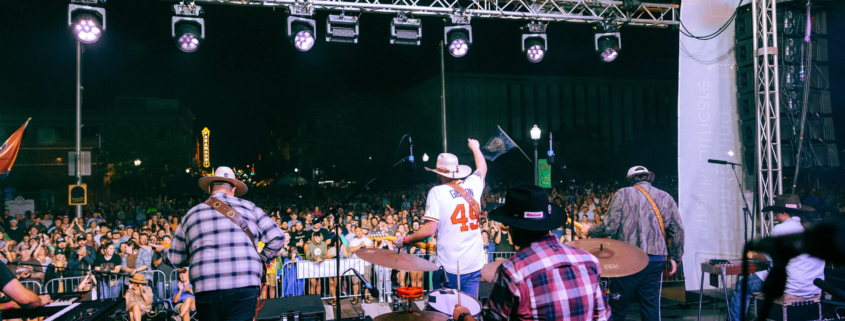


Leave a Reply
Want to join the discussion?Feel free to contribute!